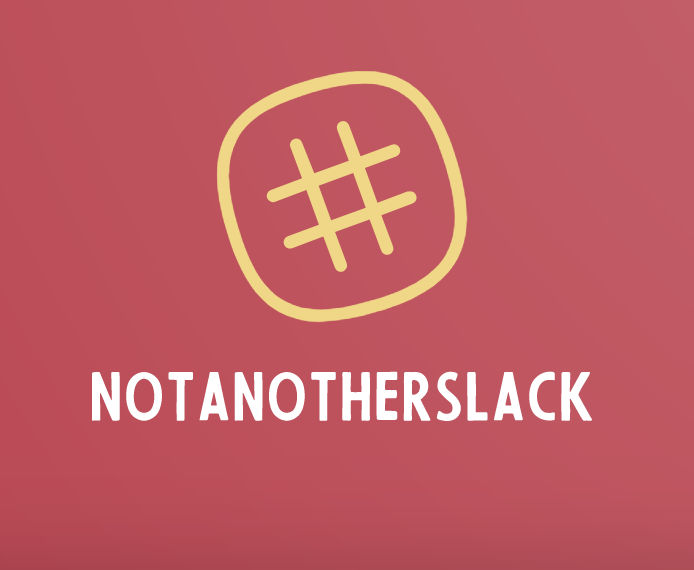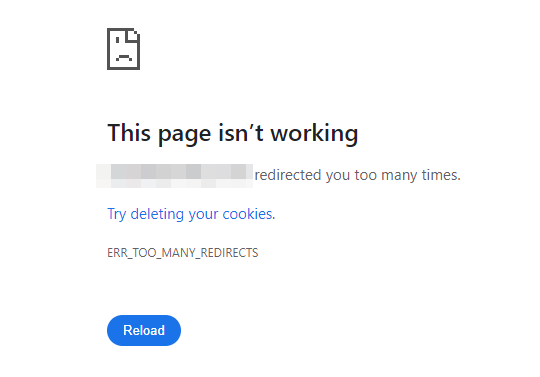Just over 2 years ago I announced the creation of NotAnotherSlack, a community designed for side project owners to come and discuss the ups and downs of creating and running side projects.
At the time there was a lot of chatter on social media about successful side projects, and many were keen to get involved. I think I may have jumped on the bandwagon slightly by creating the community.
Ultimately I have no regrets about creating the Slack group, and accompanying website. I met some very cool people, learned a lot (namely: how not to run a Slack) and for a bit I felt quite powerful (I never let it get to my head, honest!).
I wanted to write this a) to share a bit about where I went wrong, and b) to give me a decent destination for the redirects I plan to implement on NotAnotherSlack.com 🙂
Why NotAnotherSlack failed 🔥
I actually shut down the community just a few days ago. The Slack had been dormant for several weeks, and so it had become redundent.
I wanted to clear the mental space it took up (should I give it one last try?!) and to simplify things. Removing the Slack and then the website will be the best course of action - I had no doubts.
I had a lot of big plans for the NotAnotherSlack - I wanted to interview other side project owners to shine a light on what they've been creating, and to help others learn from their experience.
Whilst I did carry out 2 interviews, ultimately finding time for these were hard - lots of coordination followed by editing and writing up the final interview. I probably underestimated the work that was involved.
I think the project "failed" for several reasons (don't like to use the word fail because in my mind it was still a success) - firstly I don't think I worked hard enough to create a useful, helpful community.
People need a reason to keep returning to a Slack channel, and I hadn't really crafted the right environment.
The people who joined were great and some stuck through from day one, but there were a lot who joined but didn't contribute.
That could be because I hadn't "targeted" or attracted the right audience, OR it was because they didn't really see the value in posting or joining in.
I've been a member of many good Slack communities, my favourite being the Digital Marketers Union (DMU for short) ran by Dan White.
He's done a brilliant job in creating the ideal community environment, and I think probably the main differentiator to other Slack's I've been in is that he runs a group video chat every week where a new topic will be discussed and all members are welcome to join.
Having this opportunity to properly connect with the group members makes a really big difference to the general Slack experience.
He's done a lot more than this, and clearly has put a lot of time and thought into the community - which is probably why it's not free to join.
I was hoping the growth of NotAnotherSlack would be more organic, with little effort required.
The other reason I think it didn't work is perhaps more basic - I'm not sure if there was a big need for the community in the first place.
If you've got a side project already, you probably don't need to talk to others in the same boat - you are able to figure things out as you go.
Sure, you may have questions and problems now and then, but you go to the community or place that specialises in that particular topic to get help if you really need it.
For example, need some kind of legal assistance - find a lawyer or a specific community. Got a technical issue on your side project website? Find a web dev or tech forum, or speak with a developer.
I think side projects are so broad, in terms of the day-to-day running, that it was hard to create a community dedicated to it. That's completely different to creating a Slack dedicated to SEO for example, like the thriving Slack that Noah Learner has created.
On top of this there would be a lot of people joining who were attracted by the prospect of running their own side project, but perhaps who have no experience or idea what to build.
And so there would be quite a natural gap between those newbies and the experienced ones, and I'm not sure if Slack was the best place to mix those.
Learnings for the future
Next time I'd be mindful about trying to create solid reasons for people to return to a Slack.
It all comes down to habit, and trying to create that desire to check for updates - what useful info can I learn, or how can I engage and socialise with the members?
There needs to be some "pull" otherwise the member will just be a number in the group and they wont engage.
I think it's very easy to join a Slack but harder to remember to return and contribute.
I think depending on the community topic it's important to try and get help too.
Doing everything on your own, particularly if it's a large group, can be hard work.
Having a small team of "moderators" or even just trusted members can be a great way to involve others and to make it feel more of a co-owned entity, as opposed to someone's plaything.
I'm not sure if that would have helped in my case, but for others that could be a valuable lesson.
A final thought on Side Projects
I think ultimately what caused the Slack to fail was that I lost a lot of interest in side projects.
This is quite a personal thing and doesn't reflect on the people who run genuine, helpful side projects, but I felt there was too much of an association between side projects and the "get rich quick" Twitter brigade.
I have nothing against someone trying to supplement their income, but it felt there was too much of a focus on trying to make money above everything else.
I like the idea of side projects that explore hobbies and interests, can help to market yourself to a particular group of people, or as ways of learning new skills - whether it's coding something or just using video editing software.
It all felt too much about the monetisation element, and one type of side project I've started to hate is the idea of creating an info site and monetising it to death with ads.
I know this is how 99% of the web looks like today, but I really can't stand trying to read a site when it's ad-after-ad, video-ad after video-ad. I think ad networks like MediaVine and Ezoic are largely to blame for this.
And if my community was somehow encouraging people to create more sites or side projects like that - well I'd rather not be associated with that, if I could ✌



